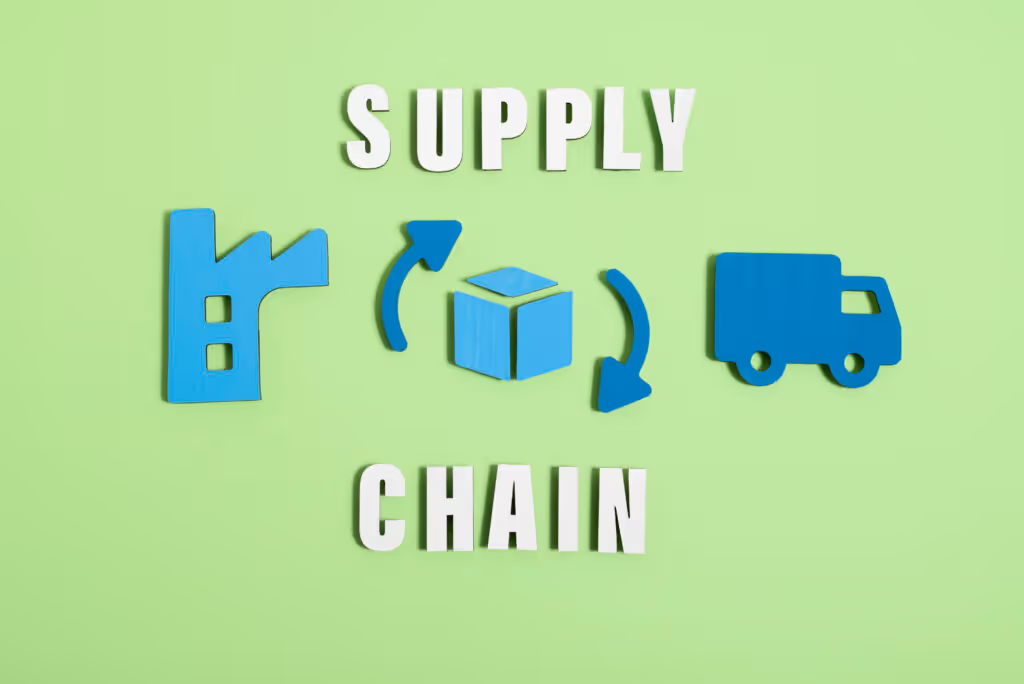The pivotal role of artificial intelligence in streamlining ecommerce operations

In today's rapidly evolving ecommerce industry, businesses must continuously strive to enhance their supply chain operations and outperform their competitors. In that regard, artificial intelligence (AI) has emerged as a profound catalyst for positive transformation for ecommerce teams and organizations. With its immense computational power and advanced analytics capabilities, AI has revolutionized how ecommerce teams and supply chain managers streamline their everyday operations.
The thing with the industry is that the ecommerce landscape is characterized by intense competition, rising customer expectations, and the need for efficient and agile operations. Traditional supply chain management approaches often struggle to keep up with the industry's dynamic nature. However, AI offers a solution by leveraging intelligent algorithms and machine learning models to process massive volumes of data, extract valuable insights, and make informed decisions.

From demand forecasting and inventory management to supply chain optimization technologies and logistics, AI can significantly enhance operational efficiency and effectiveness. By harnessing the power of AI, ecommerce teams can gain real-time supply chain visibility, identify patterns and trends, and proactively respond to changing market conditions. This enables them to optimize inventory levels, reduce lead times, improve order fulfillment rates, and deliver exceptional customer experiences.
By understanding how AI can be harnessed effectively, ecommerce teams can position themselves at the forefront of the industry and achieve sustainable growth in today's highly competitive ecommerce landscape.
For that reason, in this article, we will delve deeper into the pivotal role of AI in streamlining ecommerce operations, with a specific focus on artificial intelligence in supply chain management. We will explore the various applications of AI in demand forecasting, inventory management, supply chain optimization, and logistics. So, without further ado, here's everything you need to know about the pivotal role of artificial intelligence in supply chain management.
How AI enhances supply chain functionalities
First things first, AI has emerged as a game-changer in enhancing supply chain functionalities for ecommerce organizations. The exploitation of AI models can enable supply chain leaders to understand and analyze customer behavior patterns, enhance the overall shopping experience, and streamline numerous processes within the organization.
But much more than everything else, AI can enhance entire supply chain functionalities of ecommerce companies, an aspect of each ecommerce business that is considered to be the core of the entire operation:
- One of the key areas where AI makes a significant impact is demand forecasting. As traditional forecasting methods often fail to predict customer demand, leading to inventory imbalances accurately and lost sales opportunities, AI can analyze vast amounts of historical sales data, customer behavior patterns, market trends, and external factors to generate highly accurate demand forecasts. This allows ecommerce teams to optimize inventory levels, reduce stockouts, and minimize excess inventory, resulting in improved operational efficiency and cost savings.

- AI plays a crucial role in inventory management as well. With AI-powered systems, ecommerce companies can continuously monitor real-time data, such as sales trends, product popularity, and supplier performance. AI algorithms can then make intelligent recommendations on inventory replenishment and allocation, ensuring that the right products are available at the right time and in the right quantities. This reduces inventory holding costs and improves order fulfillment rates and customer satisfaction.
- Moreover, AI-driven solutions enable businesses to optimize their logistics operations. AI algorithms can analyze factors such as transportation data, traffic patterns, and delivery routes to generate optimal routing and scheduling plans. By minimizing transportation costs, reducing delivery times, and optimizing driver schedules, ecommerce teams can improve the efficiency and effectiveness of their logistics operations.
Now that you have a better understanding of how AI plays a crucial role in optimizing global supply chains, it is time to deep dive into how AI-driven solutions can help ecommerce companies gain valuable insights, optimize processes, reduce costs, and ultimately deliver a superior customer experience with real-life examples.
AI in demand forecasting and inventory management
Accurate demand forecasting and efficient inventory management are vital for the success of any ecommerce business. Artificial intelligence in supply chain management has emerged as a powerful tool in these areas, leveraging advanced algorithms and machine learning models to analyze data and generate precise demand forecasts.
By examining historical sales data, customer behavior patterns, market trends, and other relevant factors, AI can provide ecommerce teams with accurate demand forecasts. This enables businesses to optimize their inventory levels, ensuring they have the right products available when customers need them.
For example, Amazon utilizes AI algorithms to predict customer demand and adjust its inventory levels accordingly. This allows them to maintain a vast selection of products without incurring excessive holding costs or experiencing stockouts.

Dynamic inventory management is another area where AI plays a crucial role. The best AI-powered tools help companies to continuously monitor real-time data, such as sales trends, product popularity, and supplier performance, to make intelligent inventory replenishment and allocation recommendations. By adopting this approach, ecommerce teams can optimize their inventory levels in real-time, reducing excess inventory and minimizing the risk of stockouts.
Walmart, for instance, utilizes AI-powered systems to monitor sales data and adjust inventory allocation across its vast network of stores, ensuring that popular products are readily available at each location.
AI-driven inventory management also enhances order fulfillment rates. By analyzing data on product availability, customer demand, and fulfillment capabilities, AI algorithms can optimize order allocation and routing to minimize delays and improve the speed of delivery. Shopify, a leading ecommerce platform, uses AI to automate order routing, selecting the most efficient fulfillment centers based on inventory availability and proximity to customers.
Overall, AI in demand forecasting and inventory management enables ecommerce teams to make data-driven decisions, optimize inventory levels, reduce holding costs, minimize stockouts, and deliver an exceptional customer experience. By leveraging supply chain optimization technologies like AI, businesses can achieve operational efficiency, cost savings, and customer satisfaction in the dynamic and competitive ecommerce industry.
Supply chain optimization technologies
Supply chain optimization technologies powered by AI have revolutionized ecommerce operations. These advanced technologies utilize machine learning algorithms to analyze vast amounts of data from diverse sources such as customer orders, supplier information, transportation data, and production capacity. By processing and interpreting this data, AI algorithms can identify bottlenecks and website errors, optimize routing and scheduling, and allocate resources efficiently.

Furthermore, AI can detect hidden patterns and anomalies in supply chain data, allowing ecommerce teams to address potential disruptions proactively. For instance, Walmart, again, utilizes AI to monitor various factors, such as weather conditions and social media trends, to detect early signs of potential supply chain disruptions. By identifying these risks in advance, Walmart can proactively mitigate them and ensure uninterrupted operations.
Ultimately, AI-powered supply chain optimization technologies enable ecommerce giants to streamline their operations, reduce costs, and deliver an exceptional customer experience. By leveraging AI algorithms and real-time data analysis, these technologies optimize routing, allocation of resources, and risk management, resulting in improved on-time delivery rates, reduced lead times, and increased customer satisfaction.
Applications of AI in logistics
Last but not least, the application of AI in logistics has transformed how ecommerce companies manage their delivery operations. By harnessing AI algorithms and technologies, businesses can optimize routes, automate manual tasks, and improve overall efficiency in the logistics process:
- For one, AI-powered route optimization algorithms analyze real-time traffic data, weather conditions, and other relevant factors to generate optimal delivery routes. This enables ecommerce teams to reduce fuel consumption, minimize travel distances, and improve overall delivery efficiency. By considering factors such as road conditions, traffic congestion, and customer preferences, AI algorithms can dynamically adjust routes to ensure timely deliveries.
- Furthermore, another real-time example of AI-driven supply chain optimization is seen in the operations of UPS, a global logistics and package delivery company. UPS utilizes AI algorithms to optimize its delivery routes by considering factors like traffic conditions, weather, and customer preferences. By optimizing the routes, UPS can minimize fuel consumption, reduce delivery times, and enhance customer satisfaction.

- AI in logistics enables the automation of various manual tasks, such as sorting and packaging. Computer vision technology and robotic systems allow AI to identify and handle products accurately and efficiently. This automation speeds up order fulfillment processes, reduces labor costs, and minimizes errors. Amazon's extensive use of robotics in its fulfillment centers is a prime example of how AI automation enhances logistics operations. AI-powered robots efficiently navigate warehouses and retrieve and package products, resulting in faster and more accurate order fulfillment.
- AI-powered predictive analytics in logistics can anticipate demand patterns and optimize inventory positioning. AI algorithms can generate accurate demand forecasts by analyzing historical data, market trends, and customer behavior. This allows ecommerce teams to strategically position inventory in warehouses and distribution centers, reducing stockouts and improving overall inventory management.
With the ability to anticipate demand patterns and optimize inventory positioning, AI-driven logistics systems help businesses enhance efficiency, reduce costs, and provide exceptional customer experiences. As the ecommerce industry continues to evolve, adopting AI in supply chain management logistics will be crucial for staying competitive and meeting the growing demands of customers.
Recap of the transformative role of AI in supply chain management
In conclusion, AI has greatly revolutionized and is yet to revolutionize further the supply chain management for ecommerce organizations. From demand forecasting and inventory management to supply chain optimization and logistics, AI-powered solutions have transformed how businesses operate. By leveraging AI, businesses gain valuable insights, optimize processes, reduce costs, and provide exceptional customer experiences.
As the ecommerce industry evolves, embracing AI-driven solutions becomes essential for staying competitive in the digital era. AI's transformative role empowers businesses to streamline operations, enhance efficiency, and adapt to changing market dynamics. By utilizing the power of artificial intelligence, ecommerce teams can position themselves at the forefront of the industry and achieve sustainable growth.




